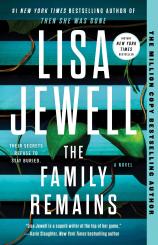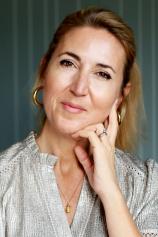Reading Group Guide
Discussion Questions
The Family Remains

1. When Phin goes missing, Lucy reaches out to his sister, Clemency, who brings up Phin and Henry’s complicated relationship. Lucy thinks to herself, “Twenty-six years is long enough for memories to grow cobwebby, abstract. Twenty-six years is long enough to doubt your recollection of things, to wonder if maybe things really did happen the way you think they happened” (69). Do you think Lucy’s questioning of her own memories is similar to Henry’s reimagining of the past? What are the similarities and differences in the ways Henry and Lucy Lamb deal with their past traumas?
2. Do you think Rachel and Lucy will continue to be friends, or do you think their bond in common is too painful for them to maintain a relationship?
3. Do you agree with Justin that Henry is “Poor Henry” and that the Lamb children were “all victims. Whatever happened inside that house, none of them deserves to be punished for it” (340)? Cite examples as to why you do or do not believe Justin’s assessment.
4. Lucy thinks to herself that she “hates herself for putting Libby in this position, for coming into Libby’s blameless, uncomplicated life and tainting it with subterfuge and darkness” (347). Do you think Libby would agree with this and resents her birth mother? Do you think Lucy is able to forgive herself by the end of the novel?
5. When Detective Owusu lets Henry go, Henry has a desire to be reunited with his family and go home. Were you surprised by Henry’s reaction here? What did you think Henry was going to do in this situation?
6. During her police interview, Lucy tells Detective Owusu that she “should have killed [Birdie]. If I had killed her, I would have been proud” (367). Does this change your perception of Lucy as a character?
7. Toward the end of the novel, Henry “recalibrates” Birdie’s murder just as he reimagined his parents’ murder and his own identity many years ago. How is this recalibration different from Michael’s gaslighting of Rachel?
8. Were you surprised that Lucy helped the police find Henry in Chicago. Why do you think she helped them? Would Henry have done the same, if their roles were reversed?
9. In Justin’s suicide note, he says that Henry had “Such a strong sense of right and wrong. More than anyone else in that house Henry knew where the moral high ground should be and was constantly begging the grown-ups to try to find it” (407). Do you agree with Justin’s evaluation of Henry? Do you think Henry skirts the moral line so well because he understands where the moral high ground should be? Or do you think Justin is exaggerating here to help clear Henry’s name?
10. What was your reaction to Michael’s death being deemed an organized crime murder? Were you expecting Lucy or Rachel to be held responsible for it?
11. For many years, Henry blaming himself for making Phin sick with a love potion, but when the two men reunite, Phin tells Henry, “I wasn’t ill from your love potion, Henry. I was ill from malnutrition. From dehydration. It was their fault I was ill. Not yours” (427). Do you think Phin is right to fully blame the adults, or do you think Henry is responsible for some of the harm that occurred in the house?
12. At the end of the novel, Henry takes on characteristics of the man he met in Chicago, Kris Doll. Why do you think Henry, despite his previous moment of clarity about his self-worth, begins to take on this new identity? Do you think his obsession with Kris is ominous, or simply due to the trauma he experienced as a child?
13. Do you think Phin meeting Libby and potentially returning to the lives of the Lamb family will allow them all to heal? Do you see a brighter future for the Lamb family with the re-emergence of Phin?
14. Do you think Henry will ever be able to live as his true self, without adopting anybody else’s personality traits? Why or why not?
The Family Remains
- Publication Date: June 6, 2023
- Genres: Fiction, Psychological Suspense, Psychological Thriller, Suspense, Thriller
- Paperback: 400 pages
- Publisher: Atria Books
- ISBN-10: 1982178906
- ISBN-13: 9781982178901







